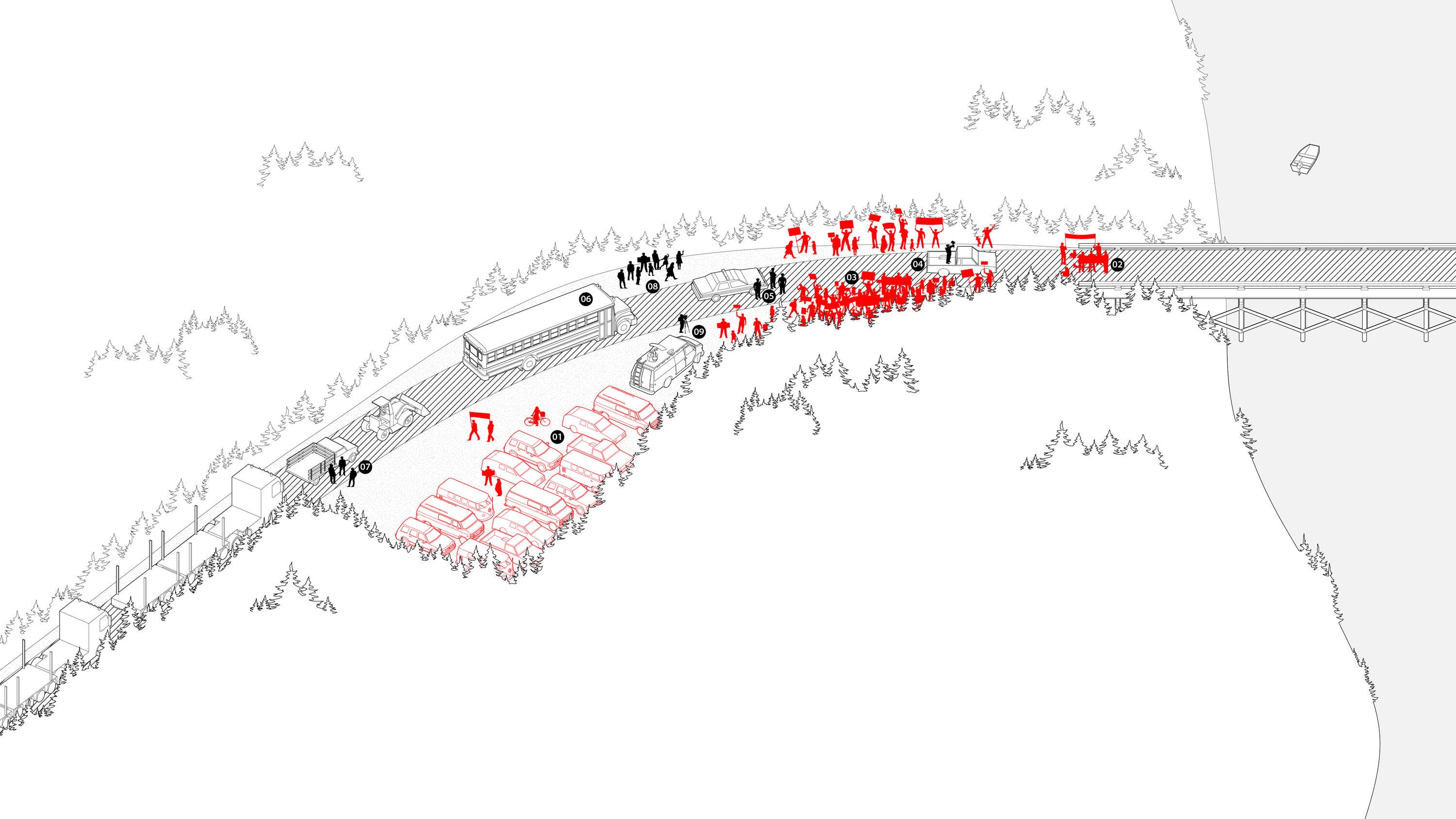Barriers
to
Change:
Environmental
Blockades
as
Radical
Spatial
Practice

Abstract:
Space carries a fundamental role in the pursuit of societal change. Recently, the relationship between space and change has constantly been revealed, challenged, and advanced at diverse sites of resistance. Amidst a multitude of entangled crises, faltering institutions, and a collapsing status quo, discontent and disenfranchised people generate change through radical spatial practice: occupying, appropriating, and producing space to create alternative futures.
A rapidly changing climate and rampant ecological degradation pose particularly devastating threats requiring urgent action. In response, environmental resistance increasingly coalesces around place, leveraging site-specific interventions to achieve ecological protection. In remote territories of extraction, resistance takes physical form through the blockade: an act of spatial obstruction with immediate impacts on the destructive processes threatening local ecologies and global climate health. Blockades are uncompromising barriers towards change, actualizing demands of environmental resistance while creating social, political, and economic pressure towards broader societal reform.
This thesis examines environmental blockades as radical spatial practice. The opening chapter positions environmental blockades in relation to existing theory and action, highlighting the inextricable link between space and change as well as a need for spatial analysis beyond an urban perspective. In the second chapter, Canada’s colonial extents provide a focused scope through which to examine the origins, trends, and tactics of environmental blockades as well as the countertactics weaponized against resistance. Lastly, a detailed case study of Clayoquot Sound’s 1993 War in the Woods illustrates how blockades are defined by, intervene in, and redefine space and place with targeted specificity. The resulting body of work carries implications for the spatial development of environmental resistance, the corresponding role of spatial disciplines, and the widespread potential for change to be achieved through space—beginning with the blockade.
The examining committee is as follows:
Supervisor:
Lola
Sheppard
Committee
Member:
Jane
Hutton
Internal
Reader:
Anne
Bordeleau
External
Reader:
Fionn
Byrne
The
defence
examination
will
take
place:
February
10,
2021,
11
am
to
12:30
pm
EST,
open
defence.
Teams
link
available
via
the graduate
student
Learn
page
or
by request.
The
committee
has
been
approved
as
authorized
by
the
Graduate
Studies
Committee.
A
copy
of
the
thesis
is
available
for
perusal
in
ARC
2106A.